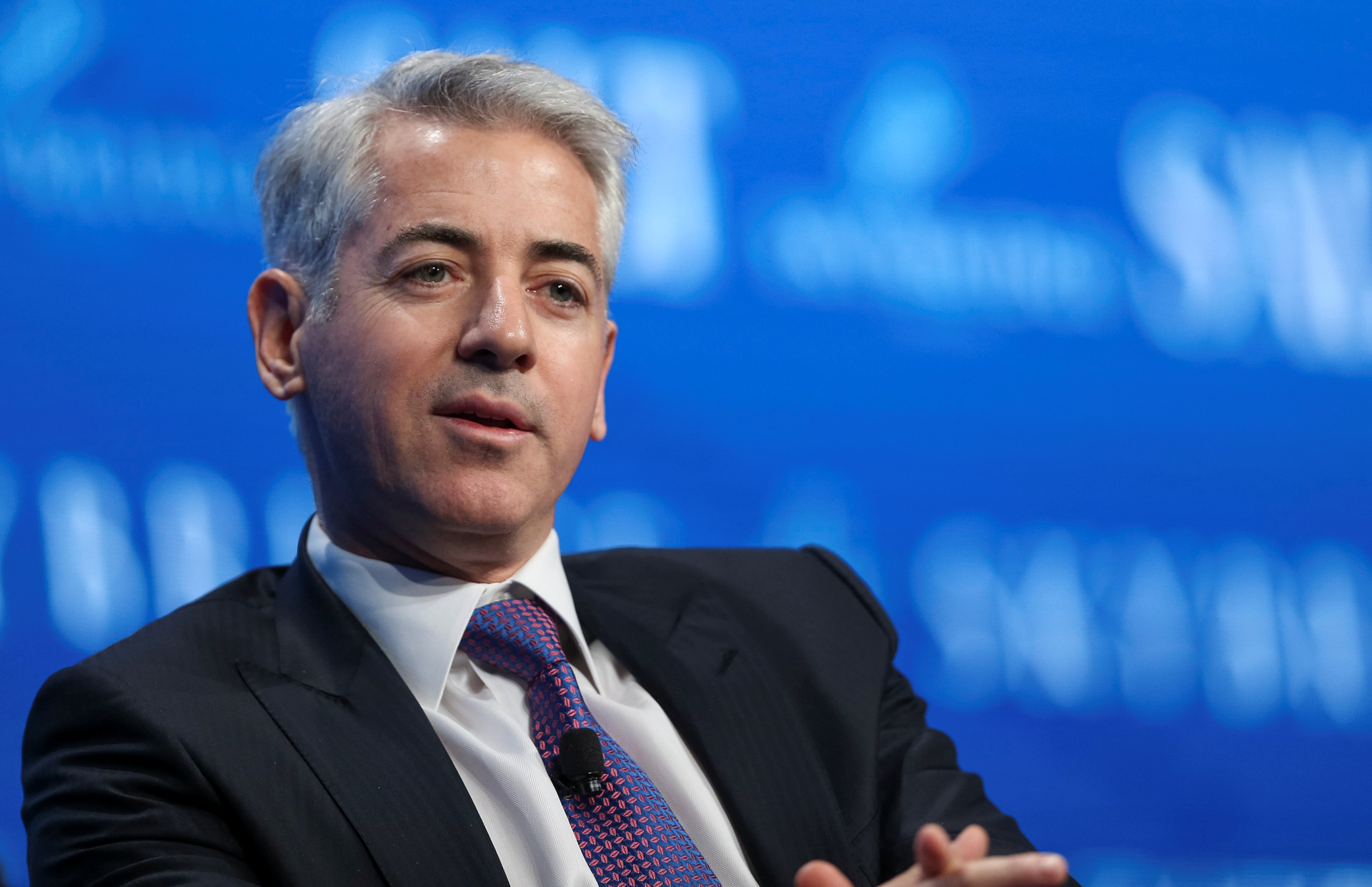In 2018, entrepreneur-turned-investor Andrew Wilkinson, who runs Victoria, Canada-based tech holding company Tiny, shelled out $57,700 for a charity auction lunch with Bill Ackman, the well-known billionaire activist investor and CEO of Pershing Square Capital Management.
The $57,700 lunch turned out to be an excellent investment for the that led to a friendship and, ultimately, a business partnership. Ackman’s family office invested in one of Wilkinson’s portfolio companies, WeCommerce, marking the young investor’s first time accepting outside capital.
This month, WeCommerce, a holding company of software and digital service brands in the Shopify (SHOP) ecosystem such as Pixel Union, Out of the Sandbox, Yopify, SuppleApps, Rehash and Foursixty made its public debut on the TSX Venture Exchange, raising CAD$60 million in the process.
Wilkinson, a thirty-something millennial, was mentored by Ackman throughout the IPO process. Ackman, 54, is well known in the value investing and activist investing world. This year, his hedge fund’s publicly-traded vehicle has returned more than 66% year-to-date, far outpacing the broader market. Ackman also broke records with the largest SPAC ever raised and is currently on the hunt to “marry a unicorn.”
According to Wilkinson, the No. 1 piece of advice from Ackman has been to think long-term.
„I think when you’re young and things are going well, it’s tempting to think about selling businesses or shuffling things around, and he just really drove home that you should really only make three to five great decisions a year. Most of your time should be spent sitting on your hands and waiting for the next great opportunity.“
Ackman, who’s known for amassing large stakes in a handful of companies, emphasized to Wilkinson the importance of „digging into the details“ and „spending a lot of time thinking versus acting.“
Before entering the investing world, Wilkinson had always been interested in technology. During his teenage years growing up in Canada, his spare time went toward learning to build websites using old computers. He came up with a clever way to procure new equipment by starting a website to review tech products. He would review the products, and then sell what he didn’t use on eBay — and began making thousands of dollars.
Soon after, he started writing stories, hiring writers for his site, attending tech conferences, and securing ad sales. When he was 17, he even interviewed Steve Jobs.
At the urging of his architect father, he reluctantly enrolled in college but immediately became disenchanted. He ended up dropping out of school and moving back home to Victoria, the capital city of British Columbia, with almost no money. His goal was to save enough to move to Silicon Valley, but he had to start over because he had given away his website.
Around 2006, he started doing freelance design software for internet applications before they became ubiquitous. He formed the company MetaLab and started landing more prominent clients. Since that time, it’s grown into one of the top design agencies with clients, including Google (GOOGL), Disney (DIS), Amazon (AMZN), Uber (UBER), and Slack (WORK).
By 2013, he was running five companies as CEO with hundreds of employees.
He sold one of the businesses, Pixel Union, a Shopify partner, and found himself with a bank balance. After that, he started reading books about stocks and investing. The first book he picked up was Alice Schroeder’s „Snowball,“ a biography of legendary investor Warren Buffett.
„As soon as I read Buffett, I realized I had just sold a business that was an incredible compounder with a moat. So, I slapped my forehead,“ he recalled.
Wilkinson had remained on Pixel Union’s board and was still a shareholder.
In 2019, he was „incredibly bullish“ on the future of Shopify and he approached the private equity firm to buy back Pixel Union. He partnered with Ackman, father-son investing duo Howard and Andrew Marks, Uber co-founder Ryan Graves, and Shane Parrish of Farnam Street to make that happen.
„It’s just been a wild ride. The thesis is very simple. E-commerce is set to double by 2024. Shopify has become the default e-commerce platform for independent retailers. It’s the only alternative to Amazon that’s at scale. It’s now a No. 2 to Amazon, in fact.“
What’s more, as e-commerce continues to grow, so will Shopify and the businesses within that ecosystem.
“Just like with the iPhone and the App Store or Salesforce App Exchange, there’s this huge ecosystem of partners that will benefit alongside of it [Shopify], and we are one of those partners in the ecosystem.”
Since WeCommerce’s founding in 2010, it has acquired more businesses that provide software and digital services for the Shopify community. With the public debut, WeCommerce is on the hunt for more deals.
Amid a backdrop of frothy valuations in the tech space, Wilkinson looks at between 750 and 1,000 companies each year and buys between three to six.
„It’s really meant that we just wait for the right opportunity where there’s a great founder who wants to sell their business to somebody who will understand it. And people sell to us for the same reason they sell to Buffett — because we have a great reputation. We’ve been doing this for 15 years, and we’re founders as well. We found that a lot of private equity firms that approached us over the years kind of looked at our business like a spreadsheet, as something to flip in a few years, lock in some gains. That’s not how we look at these businesses, we want to own businesses for ten, twenty, thirty years, and we want to keep the culture intact.“
Julia La Roche is a correspondent for Yahoo Finance. Follow her on Twitter.
[ad_2]
Source

